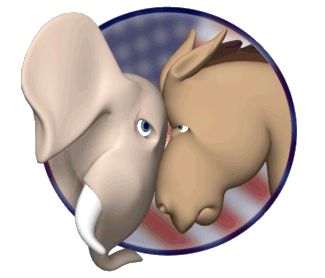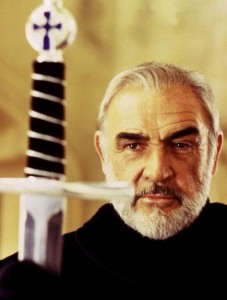 There’s a debate raging in our country that’s greater than that of Democrat vs. Republican or Right vs. Left; it is a debate over the very foundation of freedom, and the legitimacy of law. Incessant attacks on American culture, our Constitution and the Judeo-Christian Ethic that is their foundation, has left America searching for a center. Psychologists and sociologists have, effectively, corroborated the warning of Proverbs that “where there is no vision, the people perish.” As our nation has lost its vision, its sense of itself, our economic strength is eroding and our culture is collapsing.
There’s a debate raging in our country that’s greater than that of Democrat vs. Republican or Right vs. Left; it is a debate over the very foundation of freedom, and the legitimacy of law. Incessant attacks on American culture, our Constitution and the Judeo-Christian Ethic that is their foundation, has left America searching for a center. Psychologists and sociologists have, effectively, corroborated the warning of Proverbs that “where there is no vision, the people perish.” As our nation has lost its vision, its sense of itself, our economic strength is eroding and our culture is collapsing.
>>REPLAY[mp3player width=250 height=80 config=player.xml id=123 class=456 file=http://joshkimbrell.com/radio/CC-031212.mp3]
This is in no small part the result of sectarian politics. For decades, leaders of both parties have sought electoral advantages by pitting one group of Americans against another. The result is that political pundits talk of Americans in subcategories rather than as unique and exceptional individuals. Election results aren’t so much reported by states, counties or precincts, but by politically partitioned subgroups like “minority voters, women voters, young voters and old voters.” The growing incivility in American politics is likely the result of our leadership’s efforts to incite such insensitivity to divide Americans so they can conquer America.
This sort of short-sighted political gimmicking ought to be exposed for what it is: cheap and lazy politics that threatens the foundation of American freedom. Truth and justice is true and just for all people, of all backgrounds, of all ages, at all times. Truth is not striated across segments in our society. This is, in effect, what Martin Luther King, Jr. taught us in Letter from a Birmingham Jail when he wrote “injustice anywhere is a threat to justice everywhere.” Thus, I question the notion that the very segmentation of law and justice that led to the civil rights atrocities of slavery and segregation is now supposed to keep us from conflict. I believe our moral relativist friends have this one backward.
 One of my favorite movies is the 1994 classic First Knight, starring Sean Connery as King Arthur of Camelot. Honestly, I’m surprised such a movie of moral clarity on right vs. wrong was made by Hollywood in my lifetime, but this film is serious on truth claims. In one particular exchange between Arthur and an adversary, the truth about law is excellently explained:
One of my favorite movies is the 1994 classic First Knight, starring Sean Connery as King Arthur of Camelot. Honestly, I’m surprised such a movie of moral clarity on right vs. wrong was made by Hollywood in my lifetime, but this film is serious on truth claims. In one particular exchange between Arthur and an adversary, the truth about law is excellently explained:
Arthur: “You know the law we live by, and where is it written that ‘beyond Camelot live lesser people, people too weak to defend themselves, let them die?’”
Adversary: “Other people live by other laws, Arthur. Or is the law of Camelot to rule the entire world?”
Arthur: “There are laws that enslave men, and laws that set them free.” “Either what we hold to be right and good and true is right and good and true for all mankind, under God, or we’re just another Robber Tripe.”
It seems that Arthur’s adversary had something in common with the moral relativists of our day: he rejected the idea of absolutes. The problem with such a rejection of absolutes, however, is that it does not provide people with the footing to condemn the evil around them. If all truth is relative, the atrocities of Hitler could not be condemned, private property cannot be protected and even the vilest of practices like pedophilia might be praised. It was the moral relativist who said that African Americans weren’t protected by the same laws as whites. It was the moral relativist that argues some people aren’t really people.
As with Arthur, either what we hold to be true and just is true and just for all, or we are all pretentious to principle. The foundation of human law must be a higher law, natural law…God’s law. Otherwise, law gives way to brute force, to power. Absent consensus principles societies accept as true and just, laws will merely be the dictates of a dictator. Absent absolutes, might makes right. This may be a good time to point out that the adversary to Arthur, who was advocating against moral absolutes as a foundation of law, claimed “I am the law” as he burned an innocent village to the ground.
That’s something to think about, I suppose.




